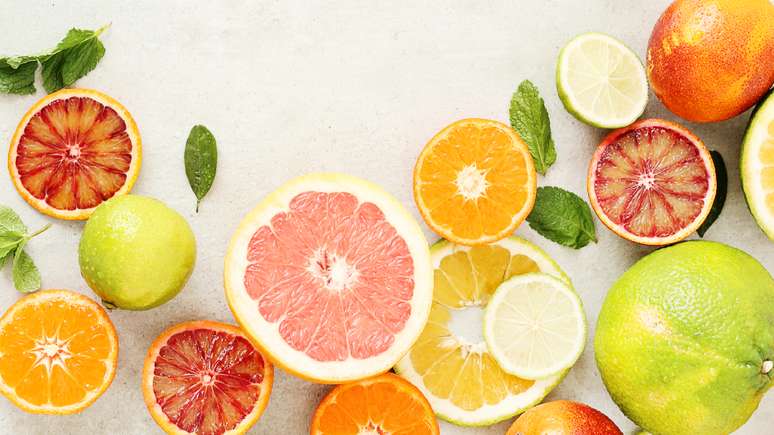In this week’s article, homeopathic pharmacist Jamar Tejada talks about the action of antioxidants on the skin and the 6 main types
It’s no wonder that our face, and more precisely our skin, is our calling card. We look at someone and “in the face” we judge their age. And it’s no use, aging is enough for everyone.
html[data-range=”xlarge”] figure image img.img-81b4c66c31a1530079e615796e4ff46dgf2pmca7 { width: 774px; height: 435px; }HTML[data-range=”large”] figure image img.img-81b4c66c31a1530079e615796e4ff46dgf2pmca7 { width: 548px; height: 308px; }HTML[data-range=”small”] figure image img.img-81b4c66c31a1530079e615796e4ff46dgf2pmca7, html[data-range=”medium”] figure image img.img-81b4c66c31a1530079e615796e4ff46dgf2pmca7 { width: 564px; height: 317px; }HTML[data-range=”small”] .article__image-embed, html[data-range=”medium”] .article__image-embed { width: 564px; margin: auto 0 30px; }
Every second, thousands of biochemical reactions take place inside our body, and even when they are stopped, our body is in a continuous process of work. Therefore, aging is one of the only certainties we have. But why does the skin become saggy as we age?
Sagging skin goes hand in hand with aging and one of the main processes responsible is oxidative stress.
The normal functioning of our cells generates toxic products, the reactive species, the main of which derive from oxygen.
To counterbalance this production, our body produces antioxidants, which protect the integrity of the cell. The problem is that these antioxidant defenses decrease with aging and the free radical production process ends up being greater than the neutralization mechanisms. That is, we oxidize ourselves more than we should. This process occurs cumulatively and impairs cellular functioning.
To compound the process, as we age we have an increased tendency towards dehydration, reduction of skin fat, bone resorption, increase of enzymes, such as metalloproteinases, which act in the healing phases and reduction of collagen and elastin synthesis. All of this accelerates the aged look.
In addition to the inherent effects of aging itself, certain factors can further accelerate oxidative damage, such as sun exposure, smoking, poor diet, sugar, insomnia and stress.
There are two types of antioxidants: enzymatic, which are naturally produced by our skin, and non-enzymatic, which are found in vitamins and other substances.
Supplementation with antioxidants
The use of antioxidants in capsules has been increasingly studied not only for skin health, but also for the health of our body, as they have the ability to react with free radicals and prevent the attack of other cellular components. In this way it is possible to divert, or at least delay, the effects generated by oxidative stress.
When we talk about studies done on the effects of antioxidants on the skin, we’re not just talking about oral antioxidants, but topical (applied directly to the skin) antioxidants that confer benefits in protecting against sun damage and improving the appearance of the skin. .
What are the most used antioxidants?
A C vitamin It is a powerful antioxidant that aids in the production of collagen, a protein essential for skin elasticity and firmness. Topical application of ascorbyl palmitate (a vitamin C ester ideal for topical application) can also improve skin texture and reduce fine lines and sun spots.
A Vitamin E, also known as tocopherol, has a powerful antioxidant action that helps prevent damage caused by free radicals. Helps delay aging, preventing skin cancer and reducing wrinkles. It can also enhance healing, as well as act as a powerful lubricant and moisturizer. Finally, it also helps in the recovery of skin elasticity. When combined with vitamin C, both act synergistically, one enhancing the action of the other and improving the stability of vitamin C.
Niacinamide is the active form of vitamin B3, a substance that helps keep you brighter. This active can be used in various anti-aging treatments, lightens blemishes and evens out skin tone.
When applied topically, niacinamide works by stabilizing the skin’s barrier function, reducing TEWL (the loss of water from the skin to the atmosphere), leaving the skin much more hydrated. It still acts in cell renewal, being an excellent antioxidant in preventing aging, helping to control excessive oiliness and improve the appearance of aged, photo-aged, resected or acne-prone skin.
OR lycopene – found abundantly in tomatoes, guava, watermelon and other red foods – and in the beta carotene, one of the most abundant sources of vitamin A, also found in fruits and vegetables known as carotenoids – which contain yellow-orange pigments, such as beets and carrots – may help reduce the damage caused by ultraviolet (UV) rays and improve health. leather look. Two other antioxidant compounds with these properties are coenzyme Q10 and quercetin.
OR resveratrol, found in the skin of red grapes, is a powerful antioxidant that complements your anti-aging skincare routine. In addition to protecting against the action of free radicals, this active ingredient is also known to stimulate our body to produce other endogenous antioxidants, increasing the cell’s defenses against external aggressions.
Among the benefits of resveratrol we can also mention the anti-oil, anti-acne and anti-inflammatory action. Resveratrol initially works by binding to free radical molecules, deactivates and neutralizes them all, preventing damage to skin cells and DNA.
Finally, several studies show that the phytochemical components of the extract Green tea they have numerous beneficial effects on the skin, such as whitening, soothing, among others. It has a rejuvenating action, capable of preventing wrinkles and improving the elasticity, nutrition and softness of the skin.
It is a fact that antioxidant supplements help maintain good skin health, but remember that it is useless to take a thousand capsules if your diet is oxidizing. In other words, inflammatory. Drink lots of water, apply sunscreen every day, even if you spend most of your time in the office, and consult a healthcare professional (doctor, pharmacist or nutritionist) to help you choose specific antioxidants for you.
Source: Terra
Ben Stock is a lifestyle journalist and author at Gossipify. He writes about topics such as health, wellness, travel, food and home decor. He provides practical advice and inspiration to improve well-being, keeps readers up to date with latest lifestyle news and trends, known for his engaging writing style, in-depth analysis and unique perspectives.







![Tomorrow belongs to us: What awaits you on Wednesday of September 10, 2025 in the episode of 2028 [SPOILERS] Tomorrow belongs to us: What awaits you on Wednesday of September 10, 2025 in the episode of 2028 [SPOILERS]](https://fr.web.img2.acsta.net/img/de/43/de43434ccf7be4d1bdd9d4b91a1240a5.jpg)

